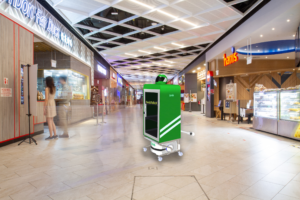
Flexible work arrangements during the pandemic have contributed to worker productivity in Singapore but it has also caused workforce exhaustion so much so that 49 per cent of employees here want to resign, according to a Microsoft study released yesterday.
The desire for continued flexible remote work and leaders being out of touch with the well-being of employees were other reasons cited by the study.
The Microsoft Work Index outlines findings from a study conducted earlier this year that included 30,000 people in 31 countries. From Singapore, the study covered 1,002 business leaders, executives and GenZ persons between 18 and 27 years old.
It also showed that business leaders are thriving but are not aware of how their employees are thinking.
“In the virtual world, there are lots of unstructured, unscheduled and ad hoc meetings. In the past, bosses bump and talk to their staff in person, they can pick up cues on whether they are okay or not,” said Microsoft Singapore’s Modern Work and Security Business Group Lead, Joanna Lim.
“In a virtual world, picking up such cues are much harder,” she noted a virtual press briefing on May 18. “So there’s a disconnect in what bosses are looking at and what their staff are feeling.”
Besides, with the volume of communications dramatically increased, workers are compelled to respond quickly to clear them, which adds to the work pressure. So, workers are rethinking their priorities and broadening their opportunities, said Lim.
With hybrid work, she said, they can work anywhere as long as they are equipped with the right technologies. They are not quitting work, but are moving to where there are more opportunities or to jobs they are passionate about, she added.
Other findings from the Microsoft study include:
• Both employers and the workforce acknowledge that hybrid work is inevitable.
• Business leaders are thriving but 44 per cent of their staff say their companies are asking too much of them at a time like this.
• Employees are working harder, leading to higher productivity but 58 per cent feel overworked, 49 per cent feel exhausted and 29 per cent said their employers do not care about work life balance.
• Seventy per cent of GenZ are struggling. Working from home, they have less face to face interaction in the first years of their work.
What do these findings mean? For one, employers should take action to create a better environment for hybrid work. Employees should have access to technologies that enable them to work whether they are at home or or continuing an office discussion while on the way to lunch.
In the office, space should be created that allow for people to collaborate safely and effectively. Immersive communications technologies could be introduced where teams of workers dialling in from home or from different parts of the world would be able to meet as though they were sitting in the same room.
One technology that can be used to check for employee well-being is Microsoft Viva Insights, which offers visibility into team collaboration patterns such as time spent on meetings, e-mails and with bosses. The data provides actionable insights for bosses.






